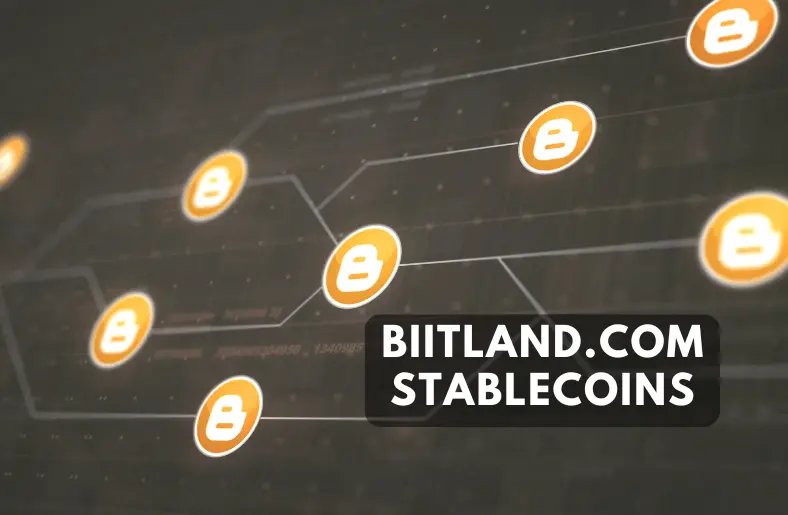Ethereum is revolutionizing the blockchain market by providing more than just virtual money. As a decentralized platform, it allows developers to build and deploy smart contracts. Through Ecryptobit.com Ethereum, we gain valuable insights into this technology. Ethereum’s flexibility and scalability make it a cornerstone of the crypto ecosystem. In this guide, we’ll explore its core features, uses, and potential. Join us as we uncover how Ethereum is shaping the future of blockchain.
What is Ethereum?
Ethereum is a decentralized blockchain platform for building applications. It enables secure, peer-to-peer transactions. Unlike Bitcoin, Ethereum supports smart contracts, self-executing agreements with predefined conditions. These contracts run automatically when triggered, removing the need for intermediaries. Ether (ETH), Ethereum’s native coin, drives transactions and makes network operations easier. Additionally, it supports decentralized applications (DApps), revolutionizing industries like finance, gaming, and supply chain management. Ultimately, Ethereum is reshaping how digital platforms function.
How Ecryptobit.com Ethereum Works
Ecryptobit.com A decentralized network of computers known as nodes powers Ethereum.These nodes maintain Ethereum’s blockchain, a public ledger that records every transaction. Consequently, Ethereum ensures transparency and immutability, making data tampering nearly impossible. Each transaction is verified by nodes, making the network highly secure. Furthermore, the decentralized structure prevents control by a single entity, promoting fairness.
The Ethereum Virtual Machine (EVM) is the engine that runs smart contracts on the Ethereum blockchain.Developers may use it to build decentralized apps (DApps). Smart contracts execute tasks automatically when certain conditions are met, reducing the need for intermediaries. As a result, Ethereum fosters innovation across industries.
Smart Contracts: The Heart of Ethereum
Smart contracts are the foundation of Ethereum’s functionality. They are essentially self-executing contracts with provisions that are encoded directly into the code. When predefined conditions are met, these contracts automatically execute tasks, ensuring no manual intervention is needed. As a result, smart contracts increase efficiency and reduce costs.
Moreover, smart contracts are secure and transparent. Once deployed on the Ethereum blockchain, they cannot be altered or tampered with. This immutability builds trust among users. Therefore, Ethereum’s ability to execute these contracts without a third party makes it a powerful tool for decentralized applications and innovations across various sectors.
Ethereum Virtual Machine (EVM)
The Ethereum Virtual Machine (EVM) is a key component of Ethereum’s success. It acts as a decentralized computing environment that executes smart contracts and DApps. By using EVM, developers can deploy applications without relying on a central server.
Furthermore, the EVM ensures that these applications run smoothly and securely across the entire Ethereum network. It processes transactions, validates smart contract code, and guarantees their immutability. As a result, EVM makes Ethereum a flexible and scalable platform for building a variety of decentralized solutions, enabling innovations in finance, gaming, and beyond.
Key Features of Ethereum
- Transparency and Decentralization
Ethereum operates on a decentralized network, allowing all transactions to be visible and verifiable. This openness fosters trust and ensures that no single entity controls the system. - Security and Immutability of Transactions
Transactions cannot be changed after they are entered into Ethereum’s blockchain. This ensures security and reduces the risk of fraud or manipulation. - Flexibility for Developers with Tools Like Solidity
Ethereum offers developers robust tools such as Solidity, a programming language, enabling the creation of complex decentralized applications and smart contracts efficiently.
Key Features of Ethereum (Table)
| Feature | Explanation |
| Transparency and Decentralization | Ethereum’s open network ensures transactions are accessible and verifiable by all, enhancing trust. |
| Security and Immutability of Transactions | Once recorded, Ethereum transactions are permanent, making them secure and resistant to tampering. |
| Flexibility for Developers with Tools | Ethereum provides developers with tools like Solidity, making it easier to build decentralized applications and smart contracts. |
Cases of Ecryptobit.com Ethereum
- Decentralized Finance (DeFi): Revolutionizing Financial Systems
Ethereum enables DeFi platforms, offering users financial services without intermediaries. This innovation allows peer-to-peer transactions, lending, borrowing, and trading in a decentralized environment, reducing costs and increasing access to financial systems. - Non-Fungible Tokens (NFTs): The Rise of Digital Art and Collectibles
NFTs on Ethereum provide a way to represent ownership of unique digital assets like art, collectibles, and music. This enables artists to monetize their work directly and gives buyers verifiable proof of ownership. - Enterprise Solutions: How Industries like Supply Chain and Healthcare are Benefiting
Ethereum’s blockchain is being used to streamline industries like supply chain and healthcare. By ensuring transparency and traceability, Ethereum improves efficiency, reduces fraud, and enables secure sharing of data across platforms.
Use Cases of Ecryptobit.com Ethereum: Real-World Applications (Table)
| Case | Explanation |
| Decentralized Finance (DeFi) | DeFi platforms on Ethereum allow peer-to-peer transactions, reducing reliance on intermediaries and improving financial inclusion. |
| Non-Fungible Tokens (NFTs) | NFTs built on Ethereum provide digital ownership of art, collectibles, and other assets, allowing creators to monetize their work. |
| Enterprise Solutions | Ethereum improves industries like healthcare and supply chain by offering transparency, traceability, and secure data sharing. |
Ethereum’s Native Cryptocurrency
Ether (ETH), the native coin of Ethereum, powers the network. Decentralized apps (DApps), smart contracts, and transactions are all powered by it. Additionally, Ether is used as an incentive for miners who validate transactions. Over time, its demand increases, driving its value. As Ethereum’s ecosystem grows, Ether becomes more integral, enhancing scalability and enabling decentralized finance. Therefore, Ether’s importance continues to expand within the blockchain world.
The Transition to Ethereum 2.0
The transition to Ethereum 2.0 introduces a new consensus mechanism, Proof of Stake (PoS). Unlike Proof of Work, PoS is energy-efficient and more scalable.This change lowers expenses and speeds up transactions. Ethereum thus becomes more ecologically friendly.Additionally, Ethereum 2.0 promises greater network security and decentralization. With increased scalability, the network will handle more users and applications. Ultimately, Ethereum 2.0’s launch paves the way for a more sustainable future.
Investing in Ethereum
Investing in Ethereum presents a promising opportunity for the future. As Ethereum’s ecosystem expands, more industries adopt it. This growth drives demand and increases Ethereum’s value. Furthermore, Ethereum 2.0’s transition enhances scalability and sustainability. Thus, Ethereum stands to become more efficient and secure. Additionally, Ethereum’s role in decentralized finance and NFTs strengthens its position. Overall, Ethereum offers long-term potential and diversified investment opportunities.
Ecryptobit.com Ethereum
Ecryptobit.com Ethereum simplifies complex blockchain concepts for everyday users. By providing user-friendly tools, it makes Ethereum accessible to all. Additionally, the platform offers intuitive interfaces, making transactions straightforward. As a result, users can easily navigate the Ethereum ecosystem. Furthermore, educational resources help demystify blockchain and cryptocurrency. This enables individuals to engage confidently in decentralized finance and other Ethereum applications. Ultimately, Ecryptobit.com Ethereum aims to make advanced technology approachable for everyone.
Conclusion
In conclusion, Ethereum’s impact continues to grow, shaping the future of digital finance. As more industries adopt decentralized solutions, its potential becomes clearer. Moreover, platforms like Ecryptobit.com make Ethereum more accessible to everyone. With innovations like smart contracts and Ethereum 2.0, Ethereum is poised for long-term success. Ultimately, its adaptability and broad use cases highlight its importance in tomorrow’s digital economy.




